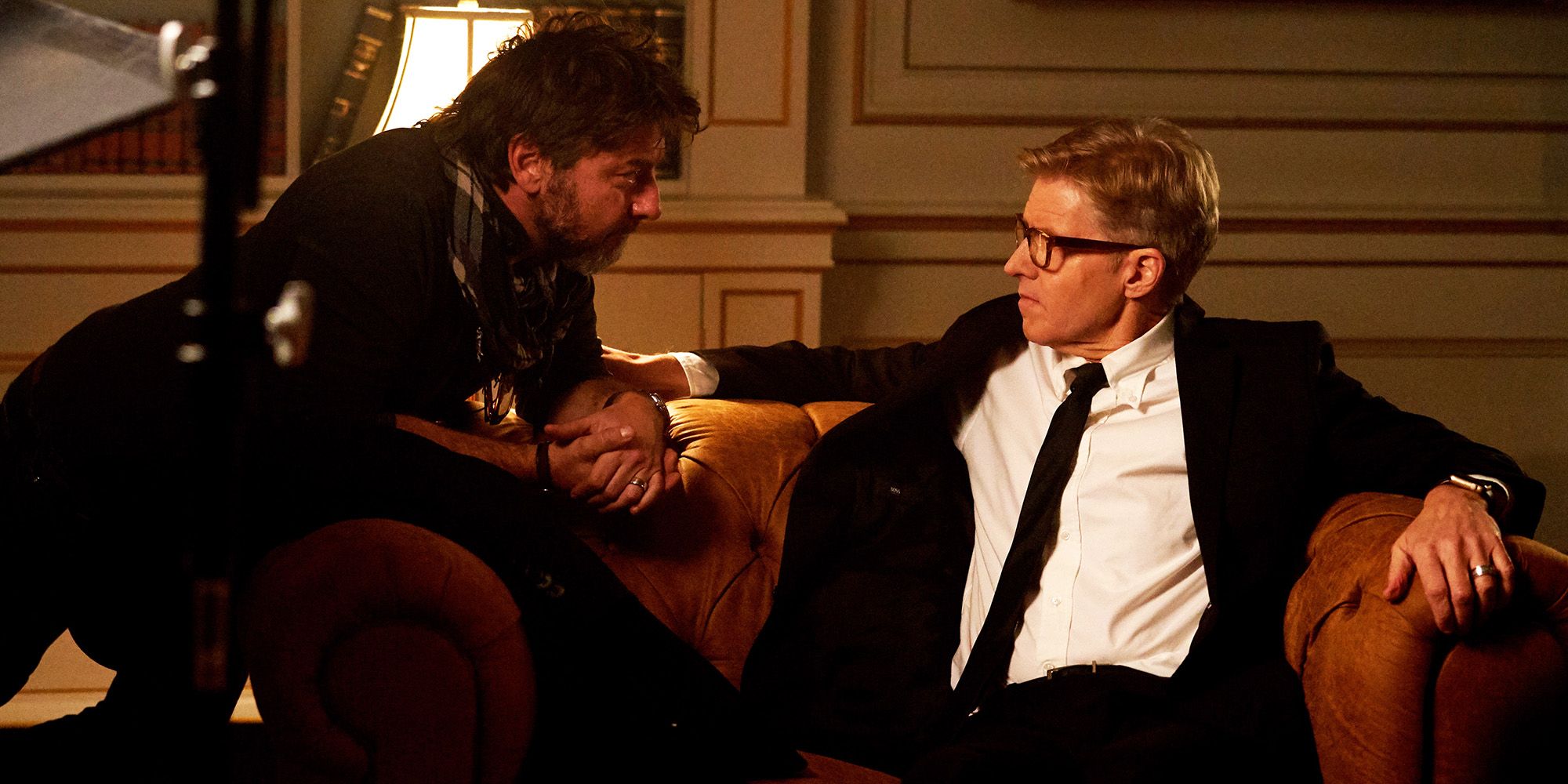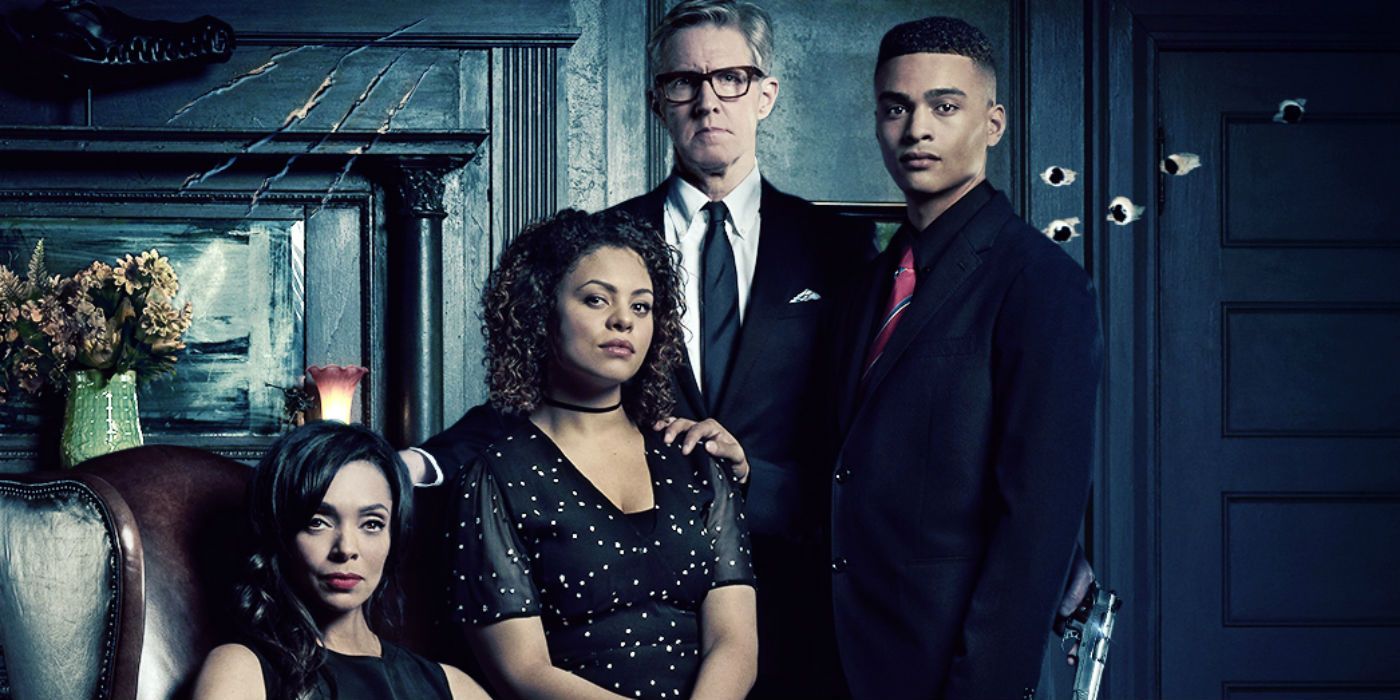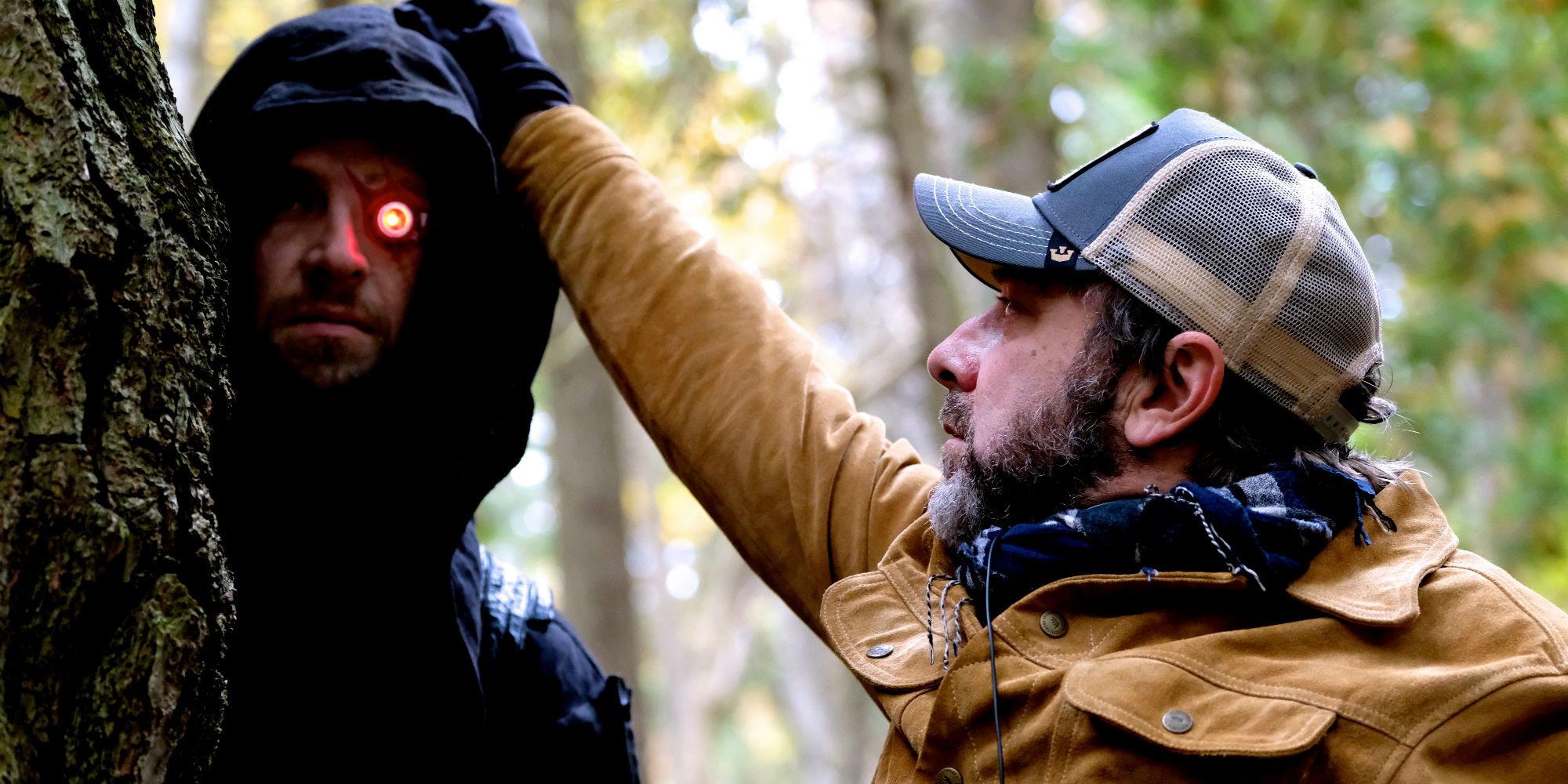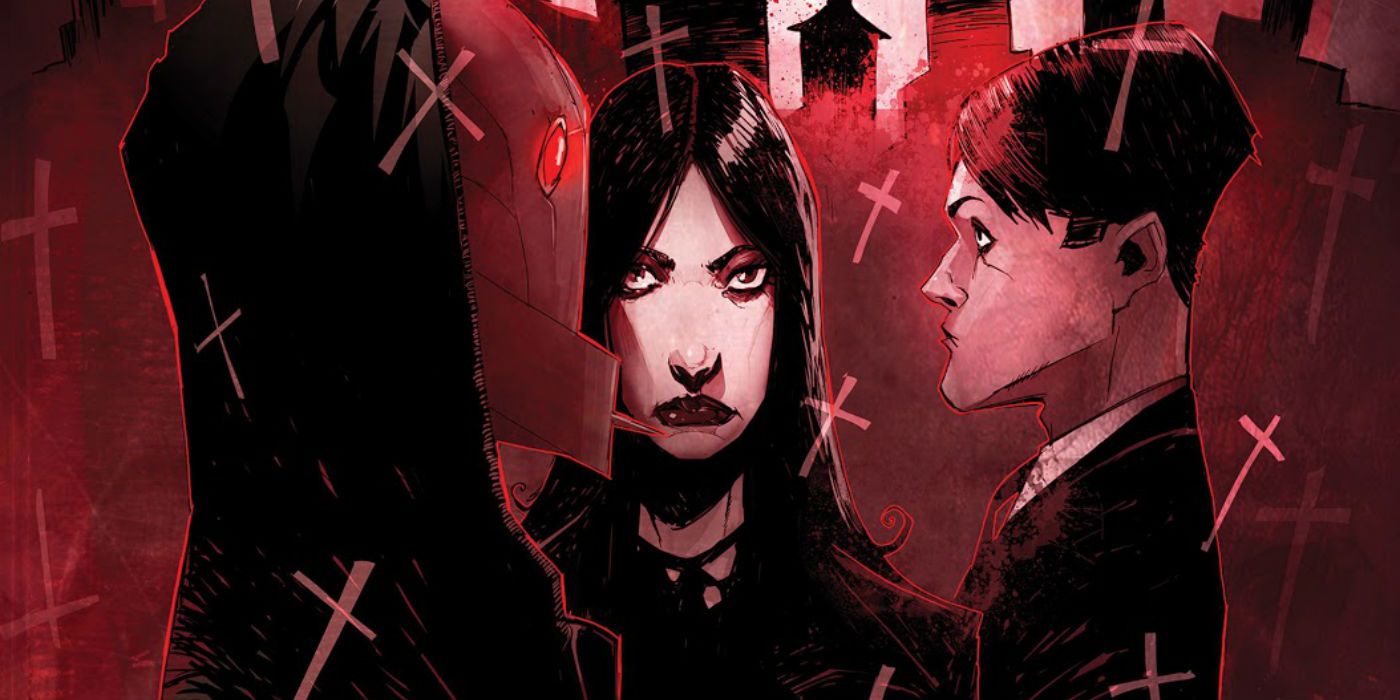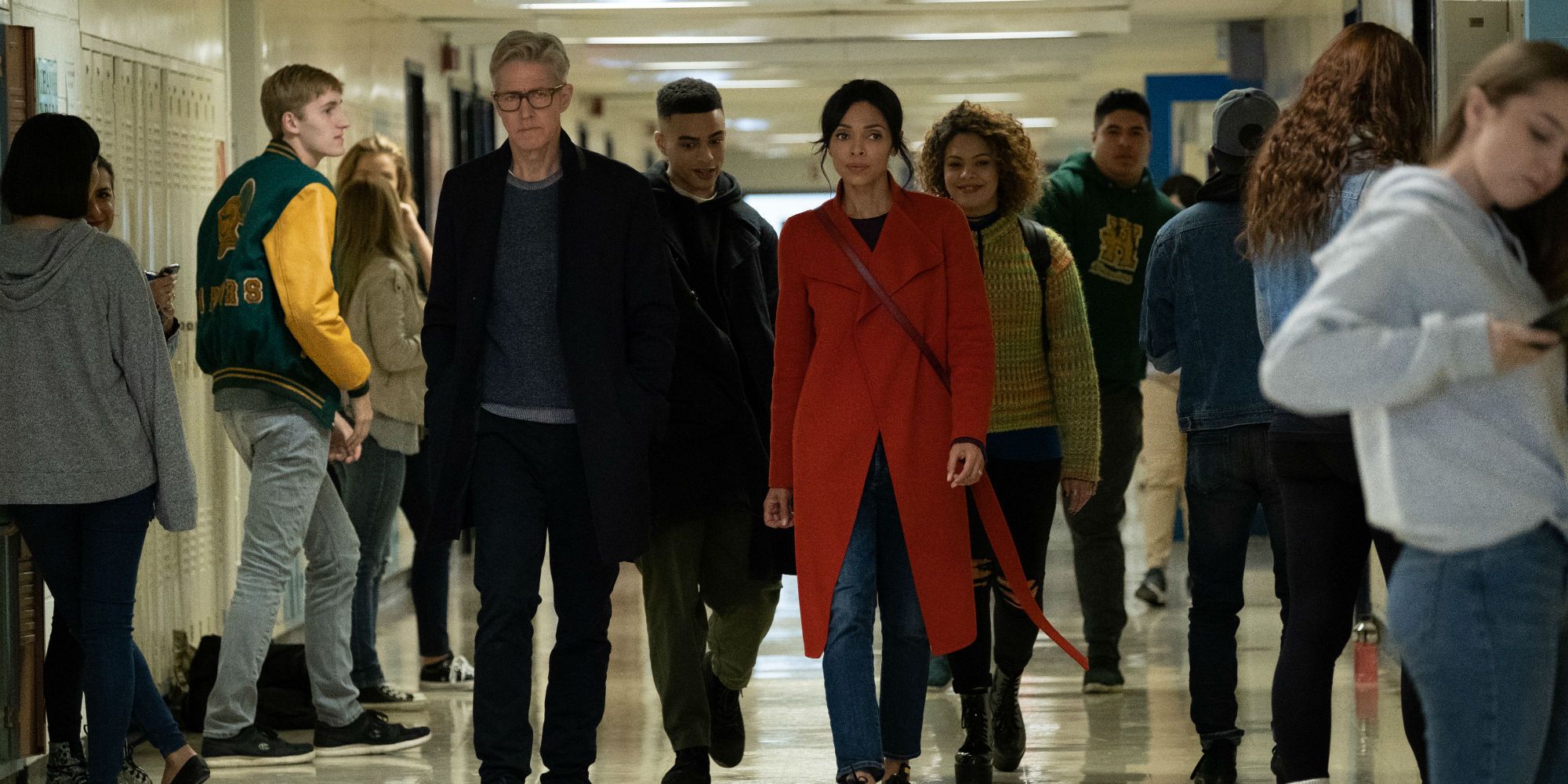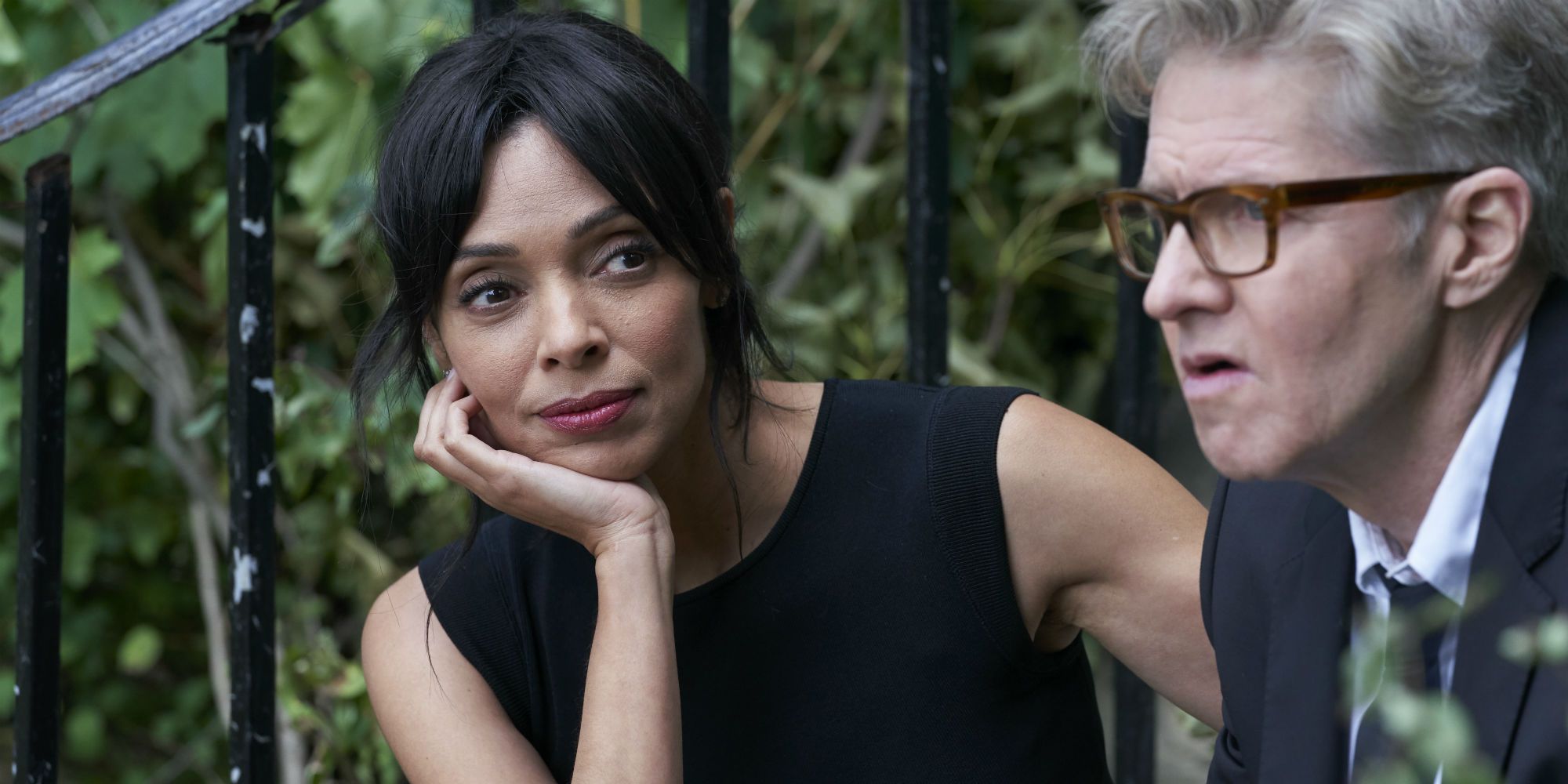Based on the comics by Steve Niles and Damien Worm, Netflix's new supernatural drama October Faction is all about scary monsters in a small town. Adapted for television by Damian Kindler (Sleepy Hollow), October Faction stars J.C. Mackenzie and Tamara Taylor as Fred and Deloris Allen, monster-hunters who secretly work for an international syndicate called the Presidio Foundation. Their 17 year-old twins Geoff (Gabriel Darku) and Viv (Aurora Burghart) think their parents are just boring insurance sales reps - but they're about to get a rude awakening.
After bringing its collaboration with Marvel TV to an end, Netflix has been delving into niche horror comics for its new series, including last year's The Umbrella Academy and the upcoming Locke and Key adaptation. October Faction uses the IDW Publishing comics as inspiration, but also expands upon them - inventing the Presidio Foundation to bring a global element to the story, and starting Geoff and Viv in a place of obliviousness to their parents' real job.
To celebrate October Faction's release on Netflix this week, we spoke to showrunner Damian Kindler about adapting the comics for TV, and what fans can expect to see in season 2.
Screen Rant: There are quite a few differences between the comics and the show. But for readers who don't know the comics at all, and maybe don't know anything about the show, can you give a rundown of the story and who the main characters are?
Damian Kindler: I think it's really important to note that, by design, if you have not read the comic book, you can completely enjoy the series. In fact, I was very aware that, while there are some very hardcore fans of Steve Niles and his work, there are a lot of people who have not read his work. It's a bit more niche; it's not like Watchmen or any DC/Marvel stuff. Which is cool and what makes it feel fresh and really different.
October Faction, at its heart, is really a family drama with a lot of supernatural elements to it. And its tone is more grounded and more character-based than the comic book, which is very hyper-stylized and much more violent; more Gothic Tim Burton in tone and style. Whereas I wanted to take this amazing world that Steve Niles had created and really adapt it more to something that had a very accessible depth to it. And make it about a family; make it about real issues and touch on themes that are very important today: xenophobia, homophobia, racism, bullying, coming of age.
I took liberties, but nothing was done without Steve Niles' blessing, because there's nothing worse than taking a work that an author's done a great job with and then running off a cliff with it. I wanted to make sure that he approved of every liberty I was going to take with it, and he did. He was very appreciative and very supportive, and he absolutely loved everything we did with it. So, it wasn't just ad hoc; it was done with the best of intentions and good support.
It seems like the show has a contrast between the very small town and then the Presidio Foundation, which is a global organization that was introduced specifically for the show.
That's one of the things that was really gratifying. In the book, it's a much smaller and intimate scale of a small, Gothic college town. But in the show, I wanted to deepen the mythology and ground the roots and kind of expand everything out. I wanted to give this organization that hunts the supernatural a name and a history, so I created the name Presidio for this organization that's existed since before the founding fathers of America and has these roots in the church. It has this ancient, almost Knights of Templar feel to it that's existed for hundreds of years. And now in the modern day continues to quote-unquote, "keep the world safe from supernatural threats," which is a trope we've seen hundreds of times. Then I wanted to turn it a bit on its head and play against our sense of expectation about that. It's fun to deepen the concept and then begin to reveal it as something other than what it is.
In terms of deepening the background, we get two more members of the Allen family in Fred's parents. Can you tell us about the parents and the role that they play in the show?
We created a more significant role for the mother, Maggie, and the father, Samuel, to really ground the show in its own history. As we tell the story of the twins, of Viv and Geoff's coming of age, we can compare it to the coming of age story of Fred and Deloris. They have known each other since they were teenagers, they grew up in a small town but were from very different parts of it. Fred, ensconced in white privilege, with a wealthy family, blue blood ties, and lifelong members of Presidio, while Deloris is from a poor, blue collar background, her father a widower and the town sheriff. She grows up in a fairly wealthy town but pretty disadvantaged, but they find each other as young people and they fall in love and make the decision that the best way out is to join Presidio and never come back to the town.
Speaking of relationships, one of the best dynamics in the comic was between Geff and Phil. Could you talk a bit about Phil as a character and how he clashes with Geoff in the show?
We definitely expanded on that. I think we changed the timeline of that a bit, but we definitely created a very interesting and, I hope, gratifying relationship between Geoff and Phil. We get to see them meet for the first time and unpack Phil's character. He's the son of a prosperous family, his father's running for mayor, and he's kind of a star athlete at the high school. Then Geoff is this new kid who's been unceremoniously plucked from this very international jet set lifestyle of traveling around the world with his parents, learning to speak many languages including Japanese, and he's been tossed into this public high school in a small town in Hudson Valley, New York. They couldn't be more different and yet, over the course of the first season, they form a bond that I think is quite cool.
One character I'm really excited to see in the show is Dante. How did you go about adapting Dante's look, which is quite unique, to a TV show?
The thing about Dante is that his character is more or less introduced in season 1, and his origin is unpacked. But we don't go any deeper than just explaining the origin. We didn't have the time or space in season one to unpack his entire story, but I think he'll play a very big role in season 2. He's quite a cool and interesting, mysterious figure in season 1, but he's not featured as dominantly as he would be in season 2. Because I think you have to pick your battles and roll things out in a more timely fashion so that everybody gets the right amount of attention. I didn't want to rush the development of his character.
I'm also looking forward to seeing a new villain who we only briefly see in the comics: Alice Harlow. Was she developed specifically for the TV show?
Specifically, yeah. She was obviously inspired by the villain in the comic books, but that character will be very interesting and very surprising, and played by the wonderful Maxim Roy, who is such a tremendous actor and a great physical actor, it's like working with a female Tom Cruise. She's just so gung-ho and ready to go, and she plays a fantastic character bent on vengeance upon Fred and Deloris. Her story, I think, is one of the greatest story arcs in this season.
Viv in the comics is very much shunned by the other girls at school. Does she have similar problems in the show?
Oh, yes, absolutely. Aurora Burghart, who plays her, is just an absolutely tremendous actor from Britain. She's a RADA graduate who brings an incredible amount of warmth and humor and brilliant intelligence to the character. Her brother's more of an extrovert, so he's able to kind of take on the world. She's more internal and has kind of a tortured artist's soul, and she's of course targeted by the mean girls at the school.
But she does make a friend in Cathy, and I think it's just one of the greatest friendships I've ever had the pleasure of helping bring to life. Cathy's played by another fantastic actor named Anwen O'Driscoll, and the two of them are just such a fantastic couple of friends. I just love their friendship; it's so authentic and real. And I think Viv's isolation, partly self-imposed and partly thrust upon her, is something that all teens can relate to. I certainly can relate to it; I remember high school being torturous at times. And I hope that we get that part right, because she did a tremendous job with that character.
How did you go about casting the young actors? I know [Gabriel Darku] from American Gods, but they're both relatively new talent.
Gabriel was sort of a no brainer; he's just beautiful and a brilliant actor and exactly what we're looking for. Finding Viv was a little bit more difficult, but Aurora is just so special. I feel that she's like finding Judi Dench at age 20. She brings such a complexity and a humaneness to the role, and from the moment when we saw her, we knew she was something special and that she would bring Viv to life in a way that was completely new and different.
You've mentioned some of the social issues in the show. There's some homophobia portrayed in the comics, but there really aren't that many people of color. How did you go about introducing those elements and diversifying the show?
Well, I just insisted. I have done enough genre and sci fi to know that it when it's done well, it really is about social issues and social justice. I wanted to tell a story, and I had a lot to say. And I was looking for a TV show that would be an authentic and organic way to talk about social issues without being preachy or eat-your-vegetables or standing on a soapbox. This felt like a very, very organic way, with a mixed-race family and interracial couple in a small town.
Race is one of those things where people think we've moved on we've evolved past it, and then you realize that of course we haven't. There's still tremendous amounts of racism and intolerance out there. I wanted to play that everything seems normal and fine, but of course, just how the supernatural works beneath the surface, so does all this horrible hate and intolerance and basic evil. I definitely was upfront from the very beginning, saying, "it's important that we talk about all these issues." Xenophobia, fear of the other, paranoia, white privilege, sexual assault - I need those. A supernatural show without those issues feels like we've been there, we've done that and we're avoiding the issue. I wanted this show to lean into those issues.
Especially being set in a small town. It feels like other shows about supernatural things happening in small towns are mainly seen from the perspective of white people who don't necessarily suffer as much from a small town mentality.
Yeah. I mean, if I wanted to be a really pretentious, horribly hoity-toity, academically artsy knob, I would say that I hope people deconstruct season 1 from a socio-economic, racial point of view and find all the intent behind it. Because there was a lot of discussion. We have a very diverse writers’ room, we have a lot of passionate people with a lot to say about what's going on in the world and in America today, and in Britain and Europe. I hired them and they came to the show with things to say because they had things to say, and I hope that's what makes the show special. It's definitely not another monster of the week program.
Speaking of monsters of the week, though, I am interested to know some of the supernatural creatures and elements we'll see in the show. The comics had mostly werewolves, vampires, and ghouls - will we see those in the show as well?
You absolutely will. And I think, hopefully, they'll be presented in a way that is fresh and will have different meaning. The word, the use of 'monster' and our expectations therein, will hopefully change. The idea is that we begin to kind of play against the cliches and the pre-existing expectations of what a vampire or werewolf is, what their lives are like, what the mythology of all that is. Because I think it's a really good metaphor for how history is written by the victors. There was the Divine Feminine until men got a hold of it, built churches, and then said God was a man. There's no reason why the supernatural can't be completely misrepresented, and I wanted to begin to open up a world where those names - vampire, werewolf - are labels that are put on them by humans.
People watch Netflix in a very different way than they watch traditional TV, since they watch shows all in one go, or several episodes at a time. Did that affect the writing process and how you structured the story?
Absolutely. This is one story told in ten chapters that keeps the plot really moving and changing. And also, in a way, the first season is an origin story that tees up the format of the show, almost like season 1 is the origin story of what ends up being the October Faction. As opposed to starting with, "We're a team of monster people." I liked backing it up and showing everybody how everything got started, rather than just diving in and saying, "Well, here we are. We're doing this." I wanted to have a more interesting origin to the whole thing.
One actor I'm excited to see is J.C. MacKenzie, since I was a huge Dark Angel fan back in the day. Can you talk a bit about his take on Fred?
[Chic Eglee], the showrunner of American Gods and essentially my mentor, is how I found J.C.. Chic said, "You've got to consider my friend J.C. Mackenzie, he's all these things." And so I just basically said, "I want J.C.," and then got letters from Martin Scorsese and Aaron Sorkin singing his praises sent to me. J.C. is just one of the great gifts in the world to be working with; he's a delight.
In the comics, Fred's trying to protect his kids from the world of the supernatural. It seems like that's even more true in the show, since he hasn't even told them about it. Is he quite protective as a dad?
Damian Kindler: Absolutely, they both are. In a way, Deloris is like the protective mother Wolverine. And the great thing about J.C. is that he's so unassuming that you do believe he's just an insurance adjuster. So, when you see him as a killer, it's quite shocking and completely surprising. As opposed to a dad who just happens to be ripped like a Navy SEAL, where you'd go, "Well, of course they cast Keanu Reeves as the dad." But with J.C., you understand how the kids would just think their dad is just this dorky dad, and when they find out the truth, it's like, "Oh my God, who are you really?" That's a better twist to me, and J.C. really brings that viable, realistic father to the show and goes even deeper with his history and the way he plays the character.
One thing I want to bring up, because it's quite a major villain role in the comics, is Merle Cope. Is he going to be in this season, or are you saving him for future seasons?
We're saving Merle Cope for season 2 and beyond. Again, had we really jammed him into the season, other things would have suffered, just like Dante. He's definitely going to be a major aspect of season 2, should we get there.
Finally, can you tease any scenes in the show that you're really excited for people to see?
Episode eight, that's all I'll say. Every good TV show has one episode a season that is just so special and different than all the rest and yet informs all the other episodes, and that's episode eight in season 1 of our show.
October Faction season 1 is available now on Netlix.

